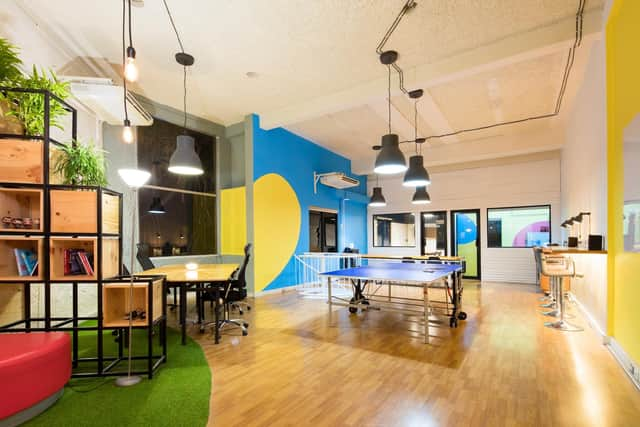A sustainable future for offices is emerging - Mark Sorsa-Leslie
These changes have signalled a new way of thinking about work. Whereas before it was seen as a physical space, it has now become a process detached from a physical location.
So where does that leave the modern workplace? Surely it will continue to exist to some degree. But if it does, what will it look like, and what will this mean for the commercial property market?
Advertisement
Hide AdAdvertisement
Hide AdToday, you cannot just lease an office and stuff it with desks. Businesses must make their spaces fit the model of work they have chosen to adopt – whether that’s hybrid working, flexible, or fully remote.


Research from Women and Banking in Finance and the London School of Economics shows that 95 per cent of workers within the financial industry prefer a hybrid working approach. However, the more control employees have over when and how often they work from home, the more complicated the scheduling challenges become for employers.
Many of Beringar’s clients are monitoring their hybrid working patterns using our solutions and seeing occupancy rate consistently below 50 per cent. As a result they are beginning to think about downsizing into smaller, higher quality offices. They have also made environmental, social and governance (ESG) commitments to their stakeholders, pledging to reduce their carbon emissions, improve the wellbeing of their people and drive up efficiency. Where work gets done has a material impact on meeting these commitments.
However, as organisations look to downsize, the knock-on effect of this race for quality space has resulted in ‘zombie’ office buildings in cities across the world. With properties no longer viable as modern office buildings, many building owners are now actively looking into converting these into housing or even industrial space.
Real estate analysts at Citi Group are estimating that the value of offices in London could fall by as much as 38 per cent over the next two to three years, driven by economic turmoil and working-from-home office shrinkage. Office markets across the UK will suffer a similar fate as large companies start to jettison surplus office space they no longer occupy.


It might sound bad for the office market, but the desire for businesses to find the best available office to help attract the best talent is having very positive effects on the market. Now, employees demand a well-thought-out, flexible workplace that fosters collaboration and innovation. Companies want to move to smarter, greener office buildings that use technology to improve the working environment, decrease running costs and reduce carbon emissions.
The good news for owners is that according to CBRE, offices like these that are certified as sustainable command a 6 per cent rental premium.
So, although there are certainly challenges ahead for the future of the office, there is clear evidence emerging that as we learn to live with hybrid working and head in a more sustainable direction, both owners and occupiers could win by being more sensitive to each other's changing needs.
Mark Sorsa-Leslie, Co-CEO and Co-Founder, Beringar
Comments
Want to join the conversation? Please or to comment on this article.